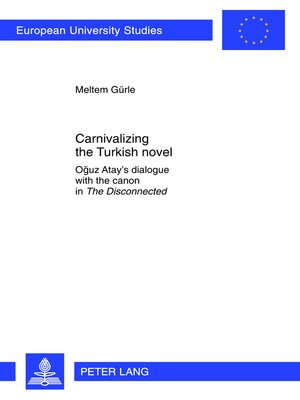Carnivalizing the Turkish novel
ebook ∣ Oğuz Atay's dialogue with the canon in "The Disconnected" · Europaeische Hochschulschriften / European University Studies / Publications Universitaires Européennes
By Meltem Gürle

Sign up to save your library
With an OverDrive account, you can save your favorite libraries for at-a-glance information about availability. Find out more about OverDrive accounts.
Find this title in Libby, the library reading app by OverDrive.



Search for a digital library with this title
Title found at these libraries:
| Library Name | Distance |
|---|---|
| Loading... |
Oğuz Atay's 1971 novel The Disconnected [Tutunamayanlar] is distinctly unique, but it can also be read as a response to Joyce's Ulysses – a singular and a very Turkish response. Any review of The Disconnected begins with the humble acknowledgement of its vast frame of reference, the multiplicity of the voices and styles that it presents, and finally its resistance to being translated into another language. What makes it interesting for the readers of modern literature, however, is not only the variety of idiosyncrasies and verbal conventions, but also its critical attitude towards Turkey's project of modernity. Drawing on Bakhtin's theory of the novel, this study traces the echoes of carnival laughter in The Disconnected while establishing Atay's work as a «world text» in dialogue with the masters of the canon: Shakespeare, Goethe, Dostoevsky, Joyce, and others.







